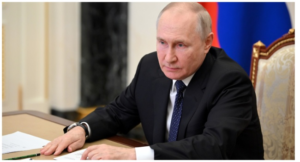
Africa, the second largest continent in the world, is plagued with multifarious challenges that gloomily torpedo its developmental blueprints and processes especially since the mid-1960s . Although, the continent’s state of underdevelopment or snail-like pace of development could be attributed to a series of internal dynamics, the chunk of Africa’s porous development indices cannot be said to be unconnected with external triggers (due to its past relationships with other continents especially Europe). History is replete with series of relationships that existed between the Western World (Europe and America) and Africa. These historical relationships date back to the period of European exploration and expansion which began in late 15th century. Prior to the famous European exploration and expansion, Africa had developed indigenously sophisticated political, economic, social and religious structures that benefitted its peoples immensely.
Before 15th century, Europe, as a continent, was backward and terribly inundated by the challenges of the Medieval Epoch such as the 100-year war between France and England, the Bubonic Plaque, the challenge surrounding the concept of’ ‘Might is Right’, the impunity of the Roman Catholic Church led by the Papacy among others.
The quest to pull through the hocus pocus of the medieval ordeal fueled the forward policy embarked upon by the European nations. It would be recalled the agenda of voyages of discovery was begun or pioneered by the Portuguese Prince known as Henry the Navigator and the achievements recorded by the Portuguese conquistadors inspired other European explorers from Spain, England, France, Holland, Italy and Germany to follow suit. It is momentous to state that two major discoveries recorded during the Renaissance Period were one – the discovery of the New World (now known as the Americas) in 1497 by Christopher Columbus and two, the discovery of the unknown sea routes to India and China in 1492 by Vasco da Gama.
Unfortunately for Africa’s kingdoms, empires and other American empires such as Ghana, Mali, Inca of Peru and Aztec of Mexico, European exploration and expansion led to the introduction of the trans- Atlantic Slave Trade which accounted for the movement of African productive forces to other parts of the world. One of the degrading aftermaths of the iniquitous slave trade was dehumanization which explains the ugly trend of cultural inferiority among Africans today.
According to development theorists, over 6 million Africans were exported by Europeans to work on the American sugarcane and other agricultural plantations during the period. However, the humanitarian campaigns and interventions of abolitionists such as William Wilberforce, Granville Sharp, Thomas Clarkson, Richard Boston and others led to the abolition of the evil trade in humans in 1807.
In the wake of the abolition of the slave trade, European powers, especially Britain and France (whose industrial revolution had garnered intense momentum) introduced a new trade called the Legitimate Trade – the argument then was – at least if trade in humans was illegitimate, economic exchange of agricultural produce would be deemed as legitimate. The rationales behind the new trade were to one, explore, exploit and expropriate Africans’ resources – the agricultural products of hides and skin, cotton, timber, cocoa etc for productive purposes and two, to use Africa as potential market for the excess European products. The relationship between the two continents could be said to be peaceful and amenable to some extent, even though, much of Africa’s natural resources were exploited to the economic advantage of Europe.
A new order was later introduced which marked the incipient of the subservient posture or inferiority complex of Africans and other less technologically sophisticated overseas territories in India, Latin America and some Asian settlements to their Eurpean counterparts. The new order, known as colonization, led to the ruthless and bullish invasion of the various African territories and the exploitation of their resources carted away to the metropolitan cities of London, Liverpool, Birmingham, Berlin, Manchester and other European metropoles. It would be recalled that conscious effort by some African leaders and communities to ward off or resist colonial onslaughts were rebuffed and in most scenarios, severely dealt with via European superior technological firepower. Cases in point were the famous Benin massacre, the conquest of Ijebu and even the banishment of Kosoko, the Lagos Monarch to Badagry.
Sequel to the conquest of Africa and other oversea territories, the European powers and freebooters began to engage one another in different conflicts and ferocious wars (during the scramble and partition of Africa) over sharing of the booty. It took the diplomatic wisdom of German Chancellor, Otto Von Bismarck, who initiated the famous Berlin Conference of 1884/85 that resolved the hostility among the powers. The panacea provided at the Berlin Conference gave the European powers the temerity or impetus to establish colonial hegemony over their respective colonies and the process of exploitation of African and other oversea lands festered.
Indeed, colonialism contributed adversely to the depletion and devastation of African political, economic, social, cultural and religious structures. In British colonial enclaves like Nigeria and Ghana, indirect rule was foisted on the different demographics which distorted their ethnic and cultural settings. For instance, in Nigeria, amalgamation of Northern and Southern Protectorates in 1914 led to the ‘mere geographical expression; called Nigeria today. All of this was done for the political convenience of the British and the mindless exploitation of the peoples’ resources.
Although, African nationalists such as Julius Nyerere, Obafemi Awolowo, Nnamdi Azikiwe, Kwame Nkrume and others took up the gauntlets to achieve sovereignty from the British and French hegemonies, all they succeeded at achieving was partial political independence, as their countries’ economic, social, cultural and religious systems were and are still in limbo today as they are tied to their former colonial masters’ apron strings. I say partial political independence – given the fact that there is always some trait of western powers’ influence in the emergence of African or even other third world countries political leaderships.
The 20th century witnessed the outbreak and the end of the First and Second World Wars ( 1914-1918 and 1939-1945 respectively) which ushered in a new world order in which United States of America emerged as a new super power with its capitalist orientation and free market economy ideology. The current international capitalist system is largely characterized by unequal exchange and the grand design to perpetually keep Africa and other countries in the Southern Hemisphere underdeveloped or undeveloped.
Walter Rodney, in his epic book: ‘How Europe Underdeveloped Africa’, argued that African historical relationship with Europe could be described as exploitative, comparative and dialectical. Rodney believes that Europe’s development led to Africa’s underdevelopment and he posits that for Africa to pull through her exploitative and dialectical as well as this hostile and unequal relationship, she has to extricate itself from the shackles of the iniquitous international capitalist system.
Ostensibly, former and late Libyan strongman, Mamman Gadhafi, was conscious of Rodney’s admonition vis a vis African unity and development and was hell-bent on addressing the malaise accordingly. Before his brutal demise, Libya was basking in the euphoria of qualitative and free educational system, high per capita income, widespread employment opportunities, industrial vibrancy and awesome Gross Domestic Product (GDP) among other enthralling development indices. The Libyan leader was a patriotic and Pan-African colossal who craved for and worked assiduously towards an African continent that would be less dependent on the Western World. Ghaddafi’s developmental strides and blueprint for African unity and development must have been perceived as a grave threat to western world interest and their anti-African development agenda, and his death was plotted and gruesomely executed.
The queries that agitate every discerning mind since Gadhafi was made to pay the ultimate prize have been: If Gadhafi could be fictitiously labelled ‘a terrorist’ by the west just because he was patriotically pursuing an African unity and development agenda, how many African leaders (dead or alive) have the nerve to take the bull by the horn and continue African development project from where Gadhafi stopped? For how long will African and other Third World leaders continue to look the other way amidst western world perpetration of injustice and antithetical posture to African developmental strides and agendas? When African leaders and their peoples begin to look inwards and determine to go back to the basis? While it is not in doubt that the present international system is a global village, and interconnection amongst states is critical for mutual political, economic and social as well as cultural developments, what are African states and leaders bringing to the table in terms of improved local production and productiveness, strong poverty alleviation policy, concerted fight against widespread corruption, stable fiscal/monetary policy, agricultural resuscitation and affordable educational and human development systems?
In drawing the curtain, Africa’s quest for development and competitive edge at the continental and global levels will remain a mirage ad infinitum until and unless she quickly begins to look inward, review and re-examine its historical trajectories and develop pragmatic blueprints that can immediately liberate or extricate its culturally and religiously diverse subjects from the doldrums of economic depression, political instability, cultural enslavement and religious and ethnic bigotry and corruption. A failure to earnestly do the needful about African development will compel posterity to see and portray us a ‘wasted and docile’ generation.
On a final note, the tragedy that pathetically befell Libyan Ghaddafi must be averted from befalling other patriotic and selfless African leaders as well as other less developing economies whose leaders think progressively irrespective of whose ox is gored. Hence, the quest for Africa’s genuine development lies on the concerted effort and unity of the current African states’ leadership to correct the ills under which Mamman Ghaddafi gave up the ghost.
Adekoya, Ademola Afis is the Director of Communication – Yoruba Global Council (YGC)







